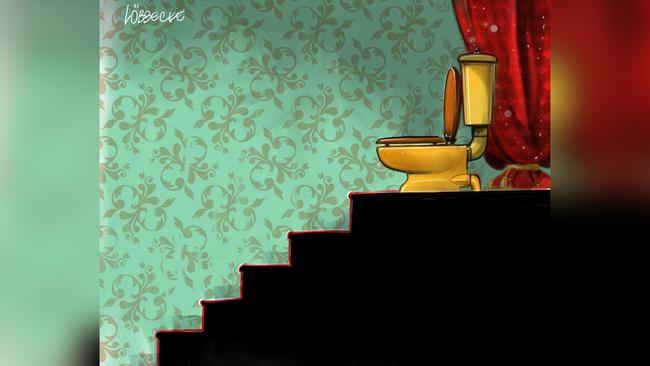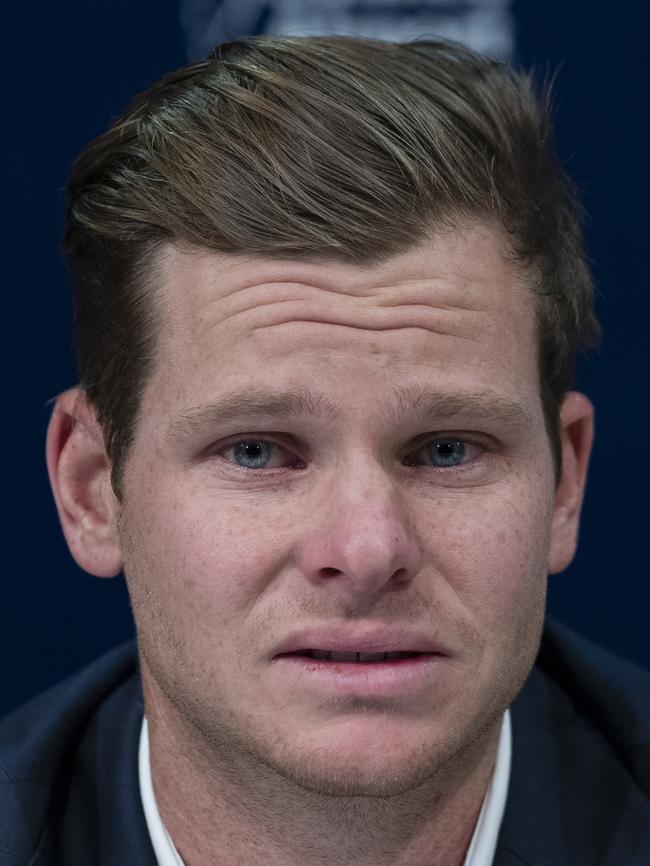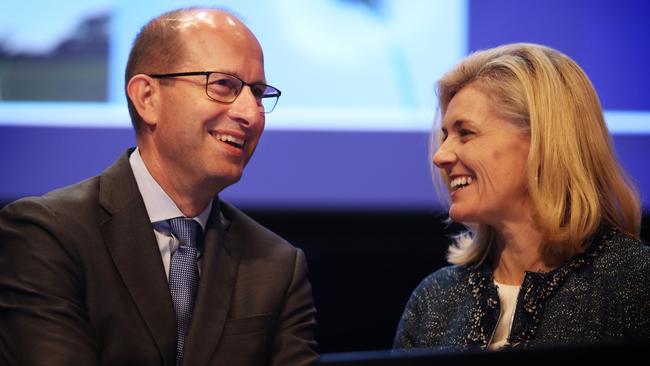
When the government rejigged the Skilled Occupations List last year, slashing 216 jobs descriptions, dashing the Australian citizenship hopes of goat farmers, dressmakers and homeopaths around the world, it overlooked a crucial addition: leader.
From the cricket pitch to the boardroom, from the pulpit to the parliament, the demand for more and better leadership is intensifying.
Former Australian cricket captain Steve Smith said his team’s recourse to ball tampering in South Africa was a “failure of leadership”. The royal commission into child sexual abuse has slammed the Catholic Church for a “catastrophic failure of leadership”. Financial regulators have condemned executives at AMP and the big four banks for lacking the leadership to prevent years of gouging and “fees for no service”, while experts have slammed the prudential and corporate regulators themselves for lacking the leadership to stamp them out.
Meanwhile the true poverty of political leadership has only begun to dawn in the days following the government’s budget and the opposition’s reply, where elimination of one tax bracket in seven years’ time stands out as the sole dot-point on the reform agenda.
As the supply of leadership has ebbed, demand for it has flowed. Only yesterday LinkedIn, a popular job networking site, listed 11,500 jobs in Australia requiring “leadership”, 520 of which specifically called for “thought leadership”, a daunting invitation to stand on the shoulders of giants in an age of disruption.
A few tweaks to the Skilled Occupations List emerged in March, giving hope — psychotherapists and real estate representatives in, beauty salon managers and horse breeders out. But it was another missed opportunity; leader once again failed to make the list of 435 jobs.
Perhaps nowhere is the quest for better leadership more intense, the demands for improvement more vociferous, than among top financial services professionals. “Leader” or “leadership” pops up 140 times in the banking regulator’s damning 111-page report into Commonwealth Bank’s “culture and leadership”, released earlier this month after eight months of scrutiny and reflection.

Certainly, financial services leaders have led the way nationally in size of pay, but what else, apart from “driving cultural change”, does the report demand?
One of the keys to better leadership, it found, was “be yourself”: “Focusing on being authentic is vital in closing the gap between the talk and the walk and achieving effective echo from the bottom,” it said. “Institutions [should be] focused on developing authentic leadership, ‘walking the talk’ and building open and trusting cultures, to embed a continual concern for safety into the DNA of the organisation.”
But don’t overdo it: “A collegial environment has led to overconfidence and sometimes misplaced confidence in the abilities and decisions” of banking leaders, leading to “underdevelopment of collective accountability”.
It’s also urged banking leaders “to champion the ‘should we?’ question in all interactions with customers” — perhaps a cryptic suggestion that “no” might be a better answer to questions such as “should we rip them off?” or “should we pay ourselves guaranteed bonuses built on tricking people?”.
Fortunately, the government has stepped up. AMP’s recent loss of three women board directors, including chairman Catherine Brenner, appears not to have gone unnoticed in Canberra. Last week’s budget pulled together a $10 million Enhancing Female Financial Capability program “to provide a grant that will support initiatives to enhance female financial capability”.
That’s not all. The National Mental Health Commission scored another $12.4m last week to “increase its capacity to provide national leadership”.
Moreover, applications have just closed for the Future Leaders Program offered by the taxpayer-subsidised Australia Council for “emerging, high-potential arts leaders from across Australia and eligible Asia Pacific countries”. The council says: “During a thought-provoking program, participants will enhance their own understanding of leadership and engage in a powerful, shared learning experience. Participants will commit to a six month-long journey of leadership activities, including two intensive residentials and online meetings, designed to stretch them intellectually and personally.”

Accomplished leader Napoleon — thought and otherwise — once remarked that every one of his soldiers had a field marshal’s baton tucked into his knapsack.
That sort of thinking doesn’t cut it these days. Monash University, Australia’s largest, is now offering a Masters of Leadership program — a year, full-time — that promises to make graduates “feel confident to lead organisational learning and innovation and to unleash creativity at a time when the need for this has never been greater”.
“Some may argue the leadership required in the age of digital disruption is no different from the past, and it’s about vision, strategy, people and delivery … But when you look more deeply, then leadership today requires a lot more,” said the Reserve Bank of Australia’s chief information officer in a recent speech about leadership in the digital age.
Whatever Captain Arthur Phillip in 1788 or prime minister John Curtin in 1941 had to deal with, it ain’t nothing on what thought leaders are facing at your favourite fintech today.
Focus on leadership might have reached unprecedented heights, exceeded only perhaps by the passion for talking about “culture”, but practical solutions to fix the problem have been thin on the ground. American anthropologist David Graeber has highlighted the extraordinary growth of “bullshit jobs” in recent years; we should be aware of the equally remarkable proliferation of “bullshit reports”.
Perhaps Monash’s leadership masters should be compulsory for CEOs. Leaders should be required to register with a new Leadership Council, so businesses could be confident they were the sort of quality leaders they hoped for.
Pessimists might say we can’t do much to improve leadership. English historian Thomas Carlyle said the history of the world was a “biography of great men”, arguing leaders were divinely gifted. German philosopher Friedrich Nietzsche, in a non-PC outburst, wrote the goal of humanity lay “in its highest specimens”.
But if leadership is a problem, then leaders are the solution. After howls of complaints last year the Turnbull government relented, putting “chief executive” back on the skilled occupations list. Let’s go one better and put “leader” there too, at least until the nation’s leadership infrastructure can catch up.





To join the conversation, please log in. Don't have an account? Register
Join the conversation, you are commenting as Logout